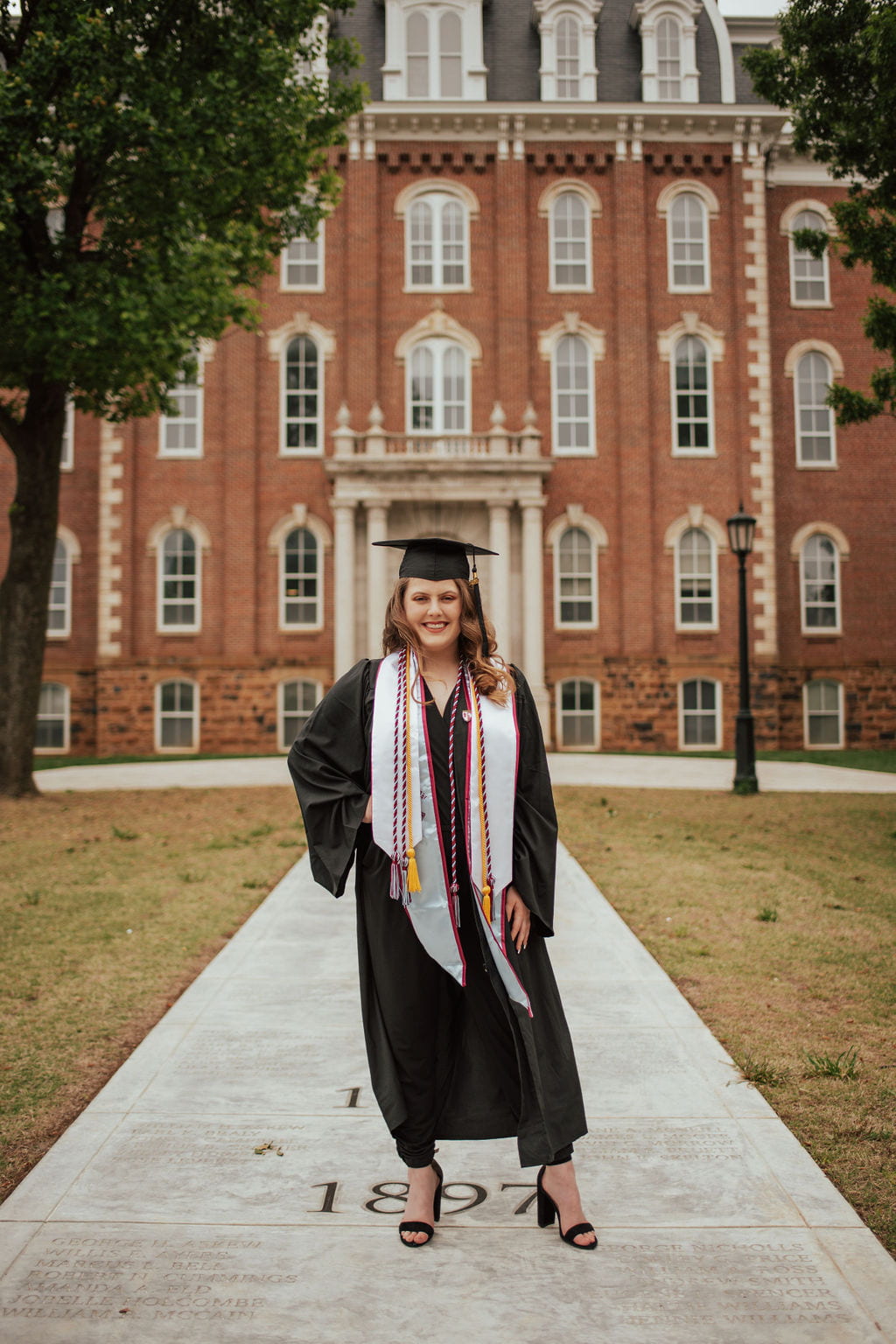 My name is Catherine Caldwell, and I am a senior double majoring in French and International and Global Studies with a concentration in peace, security, and human rights in the J. William Fulbright College of Arts and Sciences. Though I have been working on this topic for quite some time, I officially began writing my honor’s senior thesis in fall 2020 with Dr. Laurence Hare, the Director of International Studies, as my mentor. I will defend my thesis and graduate in the spring of 2021 with the intention of attending law school in the fall.
My name is Catherine Caldwell, and I am a senior double majoring in French and International and Global Studies with a concentration in peace, security, and human rights in the J. William Fulbright College of Arts and Sciences. Though I have been working on this topic for quite some time, I officially began writing my honor’s senior thesis in fall 2020 with Dr. Laurence Hare, the Director of International Studies, as my mentor. I will defend my thesis and graduate in the spring of 2021 with the intention of attending law school in the fall.
My research into the field of cyber security has been in progress since the summer of 2019. I first became interested in the subject during my time at School for International Training in Geneva, Switzerland, when I sat in on a lecture on cyber terrorism and decided to use it as the topic of my capstone project. However, I quickly realized that there was much more to cyber security than I initially realized and decided to establish a foundation of information with the intent to do further research upon my return to the University of Arkansas. Thankfully, I was able to continue my research in Dr. Hare’s Technology and Global Affairs seminar by looking into how multinational corporations have managed to navigate the varied landscape of cyber security within different nations. The thesis topic that I have finally settled on utilizes the knowledge I have gained from these previous two projects and seeks to understand whether positive peace theory is applicable in modern frontier spaces, like cyberspace.
This subject is becoming more relevant by the day. 2020 proved to the world that technology and the internet are critical tools for communication and daily activities, so it is of the utmost importance that cyber security remains fully functional in order to protect these resources. However, there are several problems that plague the field and make it vulnerable to attacks, such as the inability to remain up to date with modern technologies and the different security needs for different corporations and individuals. This kind of volatility makes achieving sustained positive peace in the space an important but complex task. Cyber security is in a constant state of evolution and will remain this way as long as new technologies are developed.

Where it all started: this photo was taken during my study abroad in Switzerland in the summer of 2019
My faculty mentor, Dr. Laurence Hare, helped me take this project to the next level. Not only was his initial interest in my topic during his course what motivated me to continue my research, but he also provided me with the opportunity to become a part of a group research project. The project takes my thesis topic and places it alongside other projects that are looking into the application of positive peace theory in various frontier spaces, like the arctic and space itself. What I am the proudest of and most excited about when it comes to this research is the longevity and potential it holds. This is an endeavor that will continue long after I graduate in May of 2021 and will allow for more students to creatively explore positive peace in other frontiers both globally and universally. The possibilities are endless in a project such as this. My hope is that it inspires others to pursue their academic interests, even if they believe them to not be directly affiliated with their major.
What’s next for me? My goal is to turn this passion of mine into a career. I plan on attending law school in the fall of 2021 and intend to pursue a JD in international law with the hopes of receiving an LLM in cyber law in the future. Overall, I hope to make a career out of cyber security policy creation, whether it be for the government or a private company.
